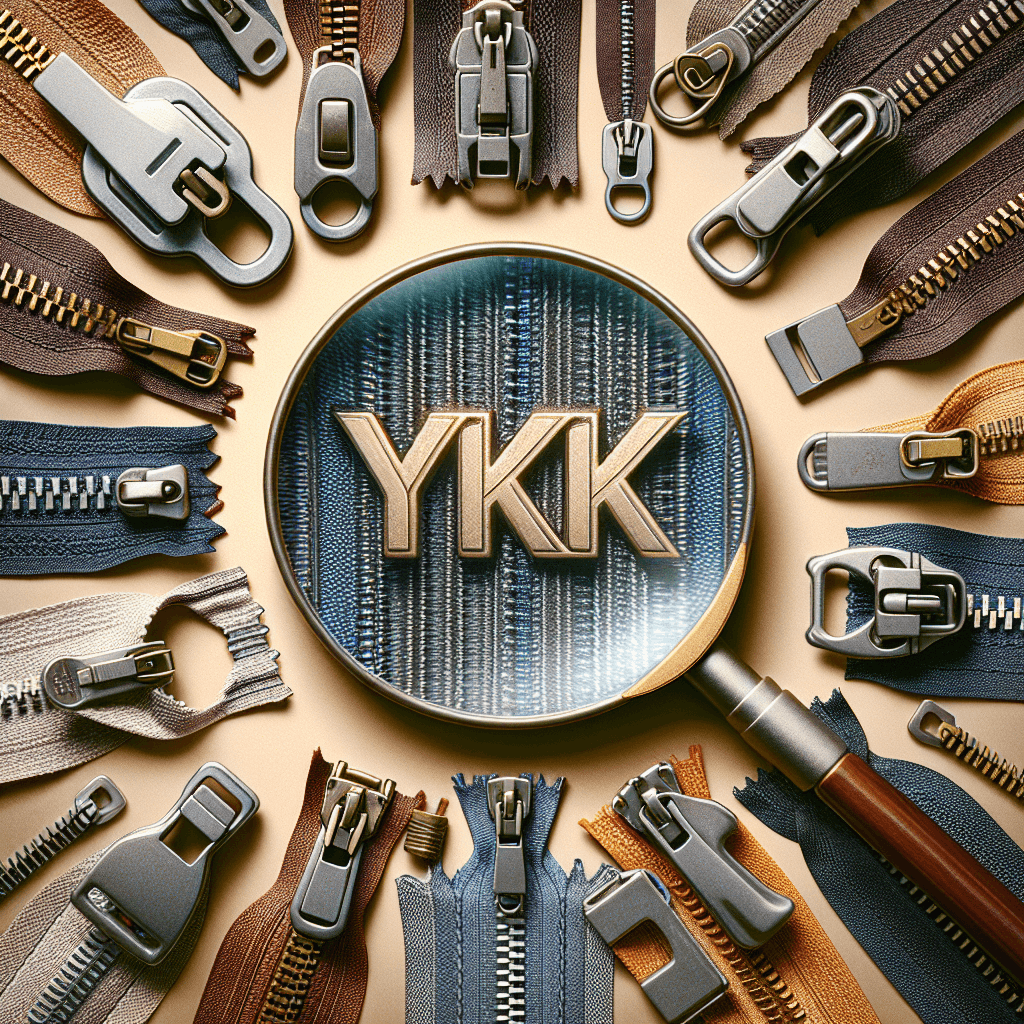Unzipping the Secret: Why YKK Zippers Are Everywhere
Ever noticed the letters 'YKK' on almost every zipper you own? Discover the story behind the world's most ubiquitous zipper and why it's a hallmark of quality and innovation.


Too Long; Didn't Read
The letters 'YKK' are on so many zippers because the Japanese company, YKK Group, is the world's largest zipper manufacturer, renowned for its long history of exceptional quality, reliability, and manufacturing.
Unzipping the Secret: Why Do So Many Zippers Have YKK Stamped on Them?
Introduction
Take a quick look at the zipper on your jeans, your jacket, or your backpack. Chances are, you'll find three small letters stamped onto the pull tab: YKK. It's one of those details we see almost daily but rarely stop to think about. Why is this specific brand so ubiquitous? It’s not just a coincidence; the prevalence of YKK zippers is a testament to a long history of quality, innovation, and manufacturing prowess. This post delves into the story behind those three letters and explains exactly why YKK became, and remains, the undisputed king of the zipper world.
Main Content
What Does YKK Actually Stand For?
Those three ubiquitous letters are an acronym for Yoshida Kōgyō Kabushikigaisha. In English, this translates roughly to Yoshida Manufacturing Corporation. The company was founded in Japan by Tadao Yoshida in January 1934. Yoshida wasn't satisfied with the existing production methods for zippers, which were often unreliable. He believed he could create a better product through meticulous control over the entire manufacturing process.
The Secret Sauce: Vertical Integration and Quality
Tadao Yoshida's core philosophy, often referred to as the "Cycle of Goodness," dictated that "no one prospers unless he renders benefit to others." For YKK, this translated into a relentless focus on quality and self-sufficiency. Unlike many manufacturers who outsource parts or processes, YKK adopted a strategy of vertical integration. This means YKK controls nearly every single step of its zipper production, including:
- Smelting its own brass
- Forging and molding the zipper teeth
- Weaving and dyeing the fabric tapes
- Manufacturing the sliders and pull tabs
- Even building and maintaining its own zipper-making machines
This comprehensive control allows YKK to maintain incredibly high and consistent quality standards across its global operations. Garment manufacturers know that a faulty zipper can lead to customer complaints, returns, and damage to their brand's reputation. By choosing YKK, they are opting for reliability and minimizing risk.
Why YKK Dominates the Market
YKK's near-monopoly isn't just about quality; several factors contribute to its widespread use:
- Reliability: This is paramount. YKK zippers are known for their durability and smooth operation. They rarely snag, break, or fail, which is crucial for everything from high-fashion garments to heavy-duty outdoor gear.
- Scale and Efficiency: Decades of refining their vertically integrated process allows YKK to produce billions of zippers annually with remarkable efficiency. While often not the absolute cheapest option, their combination of quality, volume, and reliability offers excellent value. Industry estimates often place YKK's global market share at around 50% of the entire zipper market.
- Global Presence: YKK operates in over 70 countries worldwide. This extensive network means large international brands can easily source the exact same high-quality YKK zippers for their products, regardless of where they are manufactured.
- Innovation and Variety: YKK doesn't just make one type of zipper. They offer a vast range of products, including different sizes, materials (metal, coil, plastic), and specialized zippers like water-repellent or airtight versions, catering to diverse industry needs.
Are There Alternatives?
While YKK is the dominant player, it's not the only zipper manufacturer. Other respected brands exist, such as Riri (Switzerland, known for high-end fashion zippers), Lampo (Italy, also popular in luxury markets), and SBS (China, a major competitor often offering lower prices). However, none possess the sheer scale, integrated manufacturing depth, and global reach that YKK commands, making YKK the default choice for a vast number of manufacturers worldwide.
Conclusion
So, the next time you zip up a jacket or close a bag, take a moment to notice those three little letters. YKK, or Yoshida Kōgyō Kabushikigaisha, represents far more than just a zipper brand. It signifies a Japanese company's commitment to quality, reliability, and a unique manufacturing philosophy of vertical integration that began nearly a century ago. This relentless focus on controlling every aspect of production has resulted in a product trusted by manufacturers globally, making YKK the near-ubiquitous standard in the world of fasteners. It’s a small detail, but one built on a massive foundation of industrial excellence.


